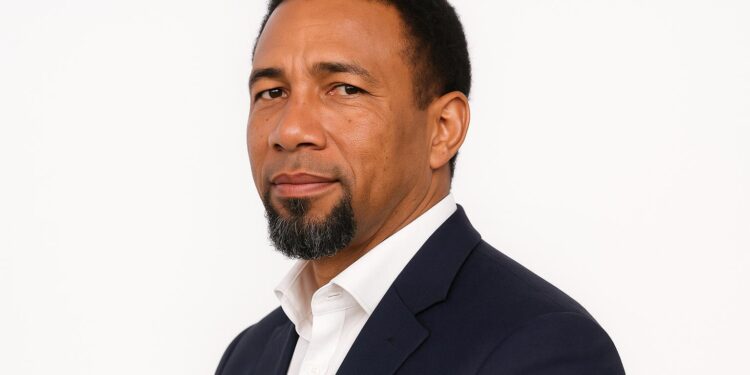Strategic Significance for Francophone Africa
Telecom giant MTN Group surprised analysts this week by elevating Karl Toriola, chief executive of its Nigerian flagship, to vice-president for Francophone Africa, a portfolio spanning Cameroon, Côte d’Ivoire, Benin and Congo-Brazzaville, four of the company’s fastest-expanding revenue engines on the continent and a signal of longer-term ambition.
Toriola will coordinate network upgrades, spectrum negotiations and mobile-money strategy across markets where French remains the primary language, translating MTN’s Anglophone successes into new regulatory environments that prize affordability and data sovereignty, according to an internal memo confirmed by two executives familiar with the Johannesburg headquarters’ deliberations today.
A Tested Operator
Born in Liverpool and educated in Lagos and Manchester, the forty-eight-year-old engineer joined MTN in 2006, quickly earning a reputation for disciplined capital allocation during stints in Ghana and Iran before steering MTN Nigeria through currency volatility, a pandemic and a record-breaking $1 billion domestic listing in 2019.
Peers credit him with balancing regulatory tact and technological vision; last year Nigeria’s communications commission approved MTN’s 5G rollout weeks after Toriola’s cordial briefing in Abuja, an episode French-speaking governments watched closely as they refine spectrum auctions intended to boost domestic innovation without discouraging foreign capital or jobs.
Digitising Everyday Life
MTN projects that mobile data traffic in Central and West Africa will quadruple by 2027, driven by video streaming, fintech applications and government e-services; Toriola’s team therefore intends to prioritise fibre-backhaul investments and cloud partnerships that shorten latency and comply with impending regional data-localisation guidelines for public trust.
Industry analysts at GSMA Intelligence estimate that every percentage-point increase in smartphone adoption adds roughly $140 million to GDP across the sub-region, a calculus that has not escaped finance ministers in Yaoundé or Brazzaville, where digital inclusion strategies are folded into broader diversification blueprints under regional development plans.
By extending mobile-money rails beyond remittances into salary payments, agricultural marketplaces and micro-insurance, MTN expects to convert informal cash into taxable flows, a prospect welcomed by several Treasuries and multilaterals such as the African Development Bank, which sees telecom infrastructure as a lever for sustainable fiscal capacity growth.
Spotlight on Congo-Brazzaville
Congo-Brazzaville, representing roughly five percent of MTN’s group subscribers, recorded a 21 percent surge in data revenue last year after the operator concluded its network-modernisation programme in Pointe-Noire; officials at the Post and Electronic Communications Regulatory Agency describe the project as ‘a catalyst for national digital sovereignty’ goals.
Sources inside the Ministry of Posts, Telecommunications and the Digital Economy suggest that forthcoming policy aims to expand 4G coverage to 95 percent of the population by 2026, a target they say aligns with President Denis Sassou Nguesso’s agenda to harness technology for inclusive, private-sector-led growth and regional digital stature.
While fibre access remains concentrated along the Atlantic corridor, MTN is negotiating public-private partnerships to extend terrestrial cables toward departments; diplomatic observers note that such infrastructure corridors could complement the Congo River shipping project, reinforcing Brazzaville’s ambition to serve as a logistical bridge between Central and West Africa.
Regional Competitive Landscape
France’s Orange and India’s Airtel have also been scaling their Francophone footprints, yet MTN retains the broadest 5G test licences and the deepest mobile-money wallet base; Fitch Solutions predicts the group could capture forty percent of incremental data subscriptions in Francophone markets over the next three years alone.
At the African Telecommunications Union last month, delegates from Gabon and the Central African Republic expressed interest in adopting MTN’s open-RAN trials, reflecting a growing preference for vendor diversification after recent supply-chain bottlenecks; analysts believe Toriola’s multilingual background positions him to accelerate such cross-border technology standardisation and cooperation.
Governance and Board Continuity
Coinciding with the promotion, MTN confirmed that former Nigeria CEO Ferdinand Moolman will leave the Lagos board next October to assume leadership in Johannesburg, a transition the company frames as orderly succession rather than upheaval, underlining its commitment to internal talent pipelines and corporate memory within the African context.
Uto Ukpanah, MTN Nigeria’s company secretary, told investors the board ‘remains determined to deliver sustainable value to every stakeholder,’ language welcomed by pension funds that collectively hold nearly fifteen percent of MTN Nigeria’s free float and who prize predictable governance amid fluctuating macroeconomic conditions across the sub-Saharan landscape.
What to Watch
Diplomats stationed in Abidjan and Brazzaville will track how Toriola navigates varying tax regimes, cybersecurity legislation and franc-zone monetary reforms; early success could bolster arguments for deeper digital single-market integration championed by the African Union’s Agenda 2063 and echo continental free-trade commitments already ratified by most Central African states.
For investors, the appointment signals MTN’s intention to pursue double-digit service-revenue growth without resorting to costly acquisitions, leaning instead on operational excellence; if Toriola translates his Nigerian playbook to Francophone countries, the region could emerge as the group’s main earnings anchor by the decade’s close, analysts cautiously agree.












































